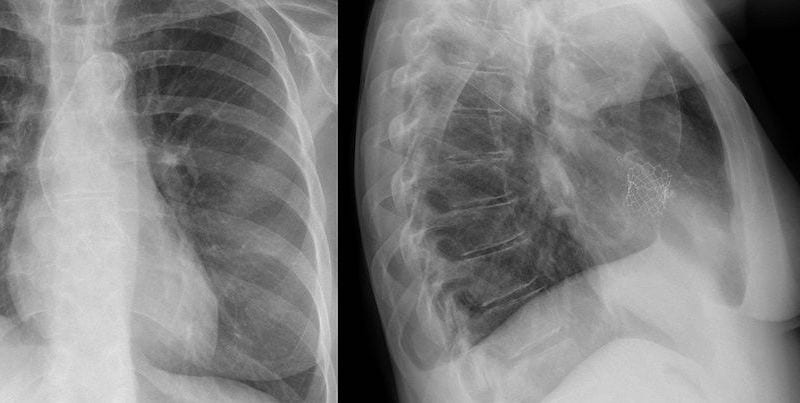
Based on the latest market analysis by iData Research, the European Transcatheter Aortic Valve Replacement (also known as TAVR/TAVI) market was valued at €836.2 million in 2020, which is a 29% decline from 2019 due to COVID19. TAVR is a minimally invasive procedure to replace the diseased aortic valve in patients with severe aortic stenosis.
In the US, the FDA has recently expanded indications for transcatheter heart valves to include low-risk patients which will drive the market in the coming years. As the European market anticipates a similar expansion, many companies are competing to gain a share of the newly developing market. To help you navigate the European TAVR market, we have identified the top 4 competitors currently active in this space.
Edwards Lifesciences
Edwards Lifesciences holds the biggest share within the TAVR market in Europe. The company saw its European sales grow in 2019 as it was the first company to gain CE Mark approval for its TAVR device to be used on low-risk patients.
While the company’s SAPIEN 3® device is used for aortic valve replacement, the SAPIEN XT® is used for both aortic and pulmonary valve replacement. TAVR devices represent an increasing share of Edwards Lifescience’s net revenue each year, increasing modestly since 2017. As other competitors gain CE Mark approval for patients in the low-risk category, it will be interesting to see if this trend continues.
When looking at the overall European Cardiac Surgery Market, Edwards Lifesciences was the second-leading competitor. The company offers tissue heart valves, annuloplasty repair devices, transcatheter mitral valve repair devices (TMVR), and TAVR devices. While only competing within these four segments, Edwards Lifesciences was the market leader in all of them except for the TMVr market.
Medtronic
After losing significant market share in 2019, Medtronic holds the second-leading position on the European TAVR market, falling slightly behind Edwards Lifesciences. Medtronic offers the CoreValve™ Pro and CoreValve™ Evolut™ R System transcatheter aortic valves. CoreValve™ Evolut™ Pro received CE Marking in July 2017 for the treatment of severe aortic stenosis for symptomatic patients at risk for open-heart surgery. The TAVR segment is expected to remain profitable for Medtronic over the next few years. In June of 2020, the Evolut™ TAVR system received CE Mark approval for low-risk patients, which would allow Medtronic to regain the lost market share and become a leader in the European TAVI market in 2021.
Within the overall European Cardiac Surgery Market Medtronic was the third-leading competitor. Medtronic achieved its position in the market by having a substantial presence in the tissue heart valve, mechanical heart valve, annuloplasty repair, transcatheter aortic valve implantation, ONCAB, OPCAB, autotransfusion, VAD, and pre-shaped guidewire segments.
Boston Scientific
Boston Scientific claims the third position within the TAVR market. The Lotus™ Valve System received CE Mark approval in October 2013. In September 2016, the company expanded its portfolio with the addition of the Lotus Edge™ Valve System. In May 2017, Boston Scientific announced the acquisition of Symetis, a privately-held Swiss manufacturer of TAVR devices, for $435 million in cash. This strategic acquisition has allowed the company to maintain a presence in the European TAVR market following the recall of the Lotus™ platform.
Boston Scientific initiated a voluntary recall of its Lotus™ Valve System in February 2017, “due to reports of premature release of a pin connecting the Lotus Valve to the delivery system.” Lotus™ re-entered the European market in March of 2019 via a controlled launch. However, in November of 2020 Boston Scientific announced a second voluntary global recall of all unused inventory and the immediate discontinuation of the program. Boston Scientific released news that the valve design had challenges, specifically its delivery system causing them to discontinue the product.
Overall, Boston Scientific achieved a minor but noteworthy market share of the European Cardiac Surgery Device Market. The company participated in the transcatheter aortic valve implantation, LAA, and pre-shaped guidewire device markets. While only capturing a minor share of the European TAVR market, that was enough to generate nearly two-thirds of Boston Scientific’s total revenue.
Abbott
Finally, we come to Abbott claiming the fourth spot in the TAVR market in Europe. In September 2015, the company gained CE Mark approval for the Portico™ TAVR valves, completing a full portfolio of sizing options available for the treatment of patients with aortic stenosis. The Portico™ TAVR System is designed to improve physician control during TAVR procedures. In March of 2020, the company announced that it had received CE Mark approval for the FlexNav™ delivery system. With the approval, physicians implanting Portico™ can benefit from improved delivery, flexibility, and navigation during implant, even in complex cardiac anatomies.
Surprisingly, overall Abbott was the leading competitor in the European Cardiac Surgery Device Market. Abbott had products in the tissue heart valve, mechanical heart valve, annuloplasty repair, transcatheter mitral valve repair, transcatheter aortic valve implantation, VAD, PFO, LAA, ASD, and VSD device market segments.
TAVI Market Forecast and analysis
The strong growth in units sold will drive the European TAVR market forward over the next few years. There are several factors behind this growth, namely the aging European population, increasing competition in the market, and including low-risk patients as candidates for transcatheter aortic valve implantation
Register to receive a free Europe Market Report Suite for Cardiac Surgery and Heart Valve Devices 2020 – 2026 synopsis
However, the surgical replacement of an aortic valve is a complicated and risky procedure. There is still little data available on long-term patient outcomes and valve durability for TAVR procedures. Until technology improves, and surgeons become more experienced at performing TAVR, these procedures are likely to have similar or even higher mortality rates than surgical procedures. This will limit the market, as physicians with less training are unlikely to use these devices.
Via: iData Research